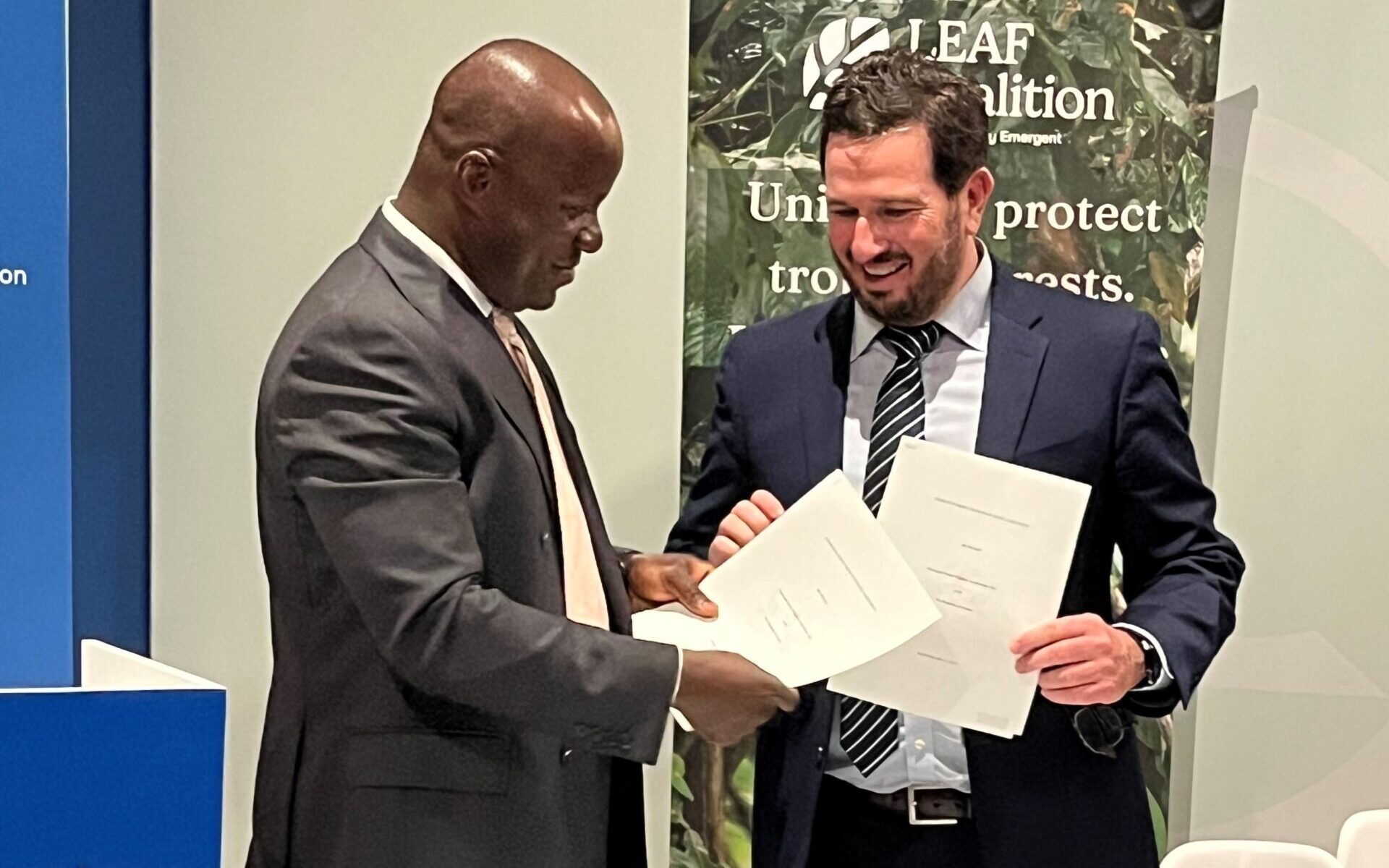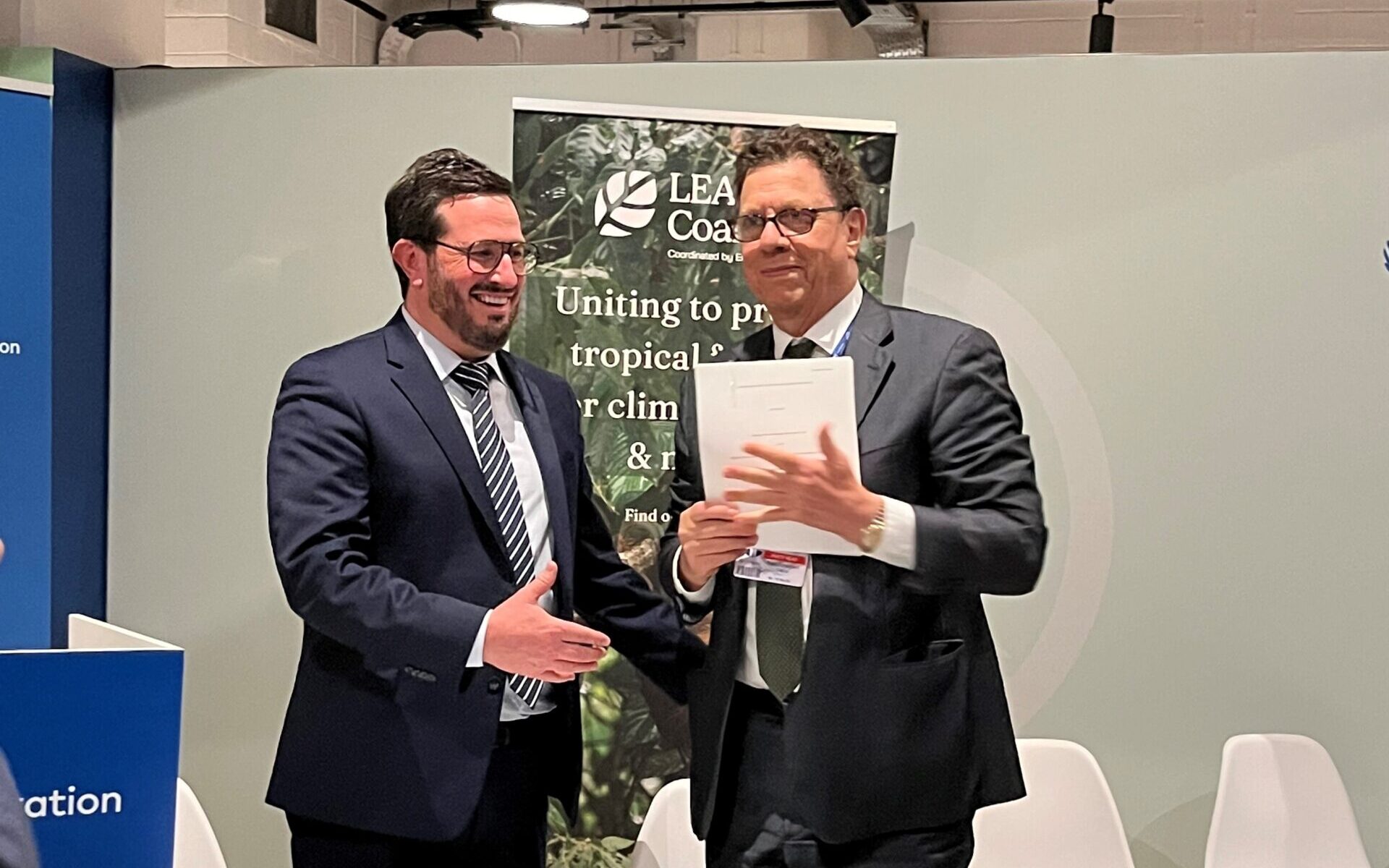
At COP28, Costa Rica and Ghana become the first forest countries to sign binding agreements to sell forest carbon credits through the LEAF Coalition, potentially unlocking more than 60 million dollars of forest finance.
The LEAF coalition is a private-public collaboration to mobilize large-scale funding for forest countries and jurisdictions capable of reducing and reversing tropical deforestation. Norway joined the coalition in 2021 as one of the founding members.

Costa Rica and Ghana signed Emissions Reductions Purchase Agreements (ERPAs) to sell forest carbon credits to buyers in the LEAF Coalition. The agreements have the potential to unlock more than 60 million US dollars for credits from the period of 2017 – 2019.
All credits will be validated and verified by the Architecture for REDD+ Transactions (ART), which uses the TREES-standard to ensure that the emission reductions are real, additional and of high environmental and social integrity. The first payment is expected in 2024.
The LEAF coalition is expecting several new transactions in 2024. The coalition will build on the first transactions with Ghana and Costa Rica for subsequent crediting years of 2022-2026. The coalition also aims to progress negotiations with the governments of Vietnam, Nepal, Kenya, Ecuador and Brazilian states.

How do the transactions in LEAF work?
The Emissions Reductions Purchase Agreements (ERPAs) with Costa Rica and Ghana are with buyers from both the public and private sector. Bayer, PwC, Capgemini and McKinsey are among the companies committing funds to support the transactions alongside Norway, United Kingdom, and the United States. In order to purchase credits through LEAF, all corporate buyers must adhere to LEAFs buyer criteria which ensures that they are already taking actions to reduce emissions within their own value chains. New companies can purchase additional credits for up to 90 days following the ERPA signature.
In both of the agreements, Norway and the other sovereign donors will provide a floor price guarantee of $10 a tonne for a portion of the credits. This means that if a company wants to purchase these credits above the floor price, any extra proceeds will be returned to the forest government, providing them an opportunity to receive a higher price.
The proceeds from the credit sales will be distributed to stakeholders according to the Benefit Sharing Plans that Costa Rica and Ghana have developed through a public consultation process. All transactions will be channeled through selected Finanial Intermediaries. Forest governments should reinvest the payments received towards green rural development and the protection and restoration of forests, including their Nationally Determined Contributions (NDCs). As such, the payments received by forest countries have more in common with climate finance than carbon trading.
What is jurisdictional REDD+?
LEAF operates at the jurisdictional scale, which means that it purchases forest credits from national and state governments that have been developed in line with their national strategies to reduce deforestation. This jurisdictional REDD+ approach has been negotiated under the United Nations Framework Convention on Climate Change and is integrated in the Paris Agreement.
Norway’s International Climate and Forest Initiative (NICFI) has pioneered jurisdictional REDD+ through bilateral and multilateral partnerships with forest countries, including Costa Rica and Ghana, since its inception in 2008. As two of the first countries to receive results-based payments from the World Bank’s Forest Carbon Partnership Facility (FCPF) from Norway and other donors, Costa Rica and Ghana have already succesfully demonstrated this proof of concept. FCPF has provided 47 countries with support for REDD+ capacity building and established 15 jurisdictional REDD+ pilot programmes. For many of these countries, the LEAF Coalition is a natural next step, as it gives the opportunity to access additional large scale finance from private companies.
